June 20, 2025 | 23:12 GMT +7
June 20, 2025 | 23:12 GMT +7
Hotline: 0913.378.918
June 20, 2025 | 23:12 GMT +7
Hotline: 0913.378.918
Editor's Notes: On June 23, the Vietnam Ministry of Agriculture and Rural Development (MARD) collaborates with the Food and Agriculture Organization of the United Nations (FAO) to organize a consultation workshop to launch the National Strategy Strengthening of the specialized veterinary management system at all levels for the period of 2021–2030 (Decision No. 414/QD-TTg).
Before this event, Vietnam Agriculture News interviewed the Director of the Department of Animal Health Nguyen Van Long (MARD) about the related issues and opportunities of the veterinary sector in Vietnam.
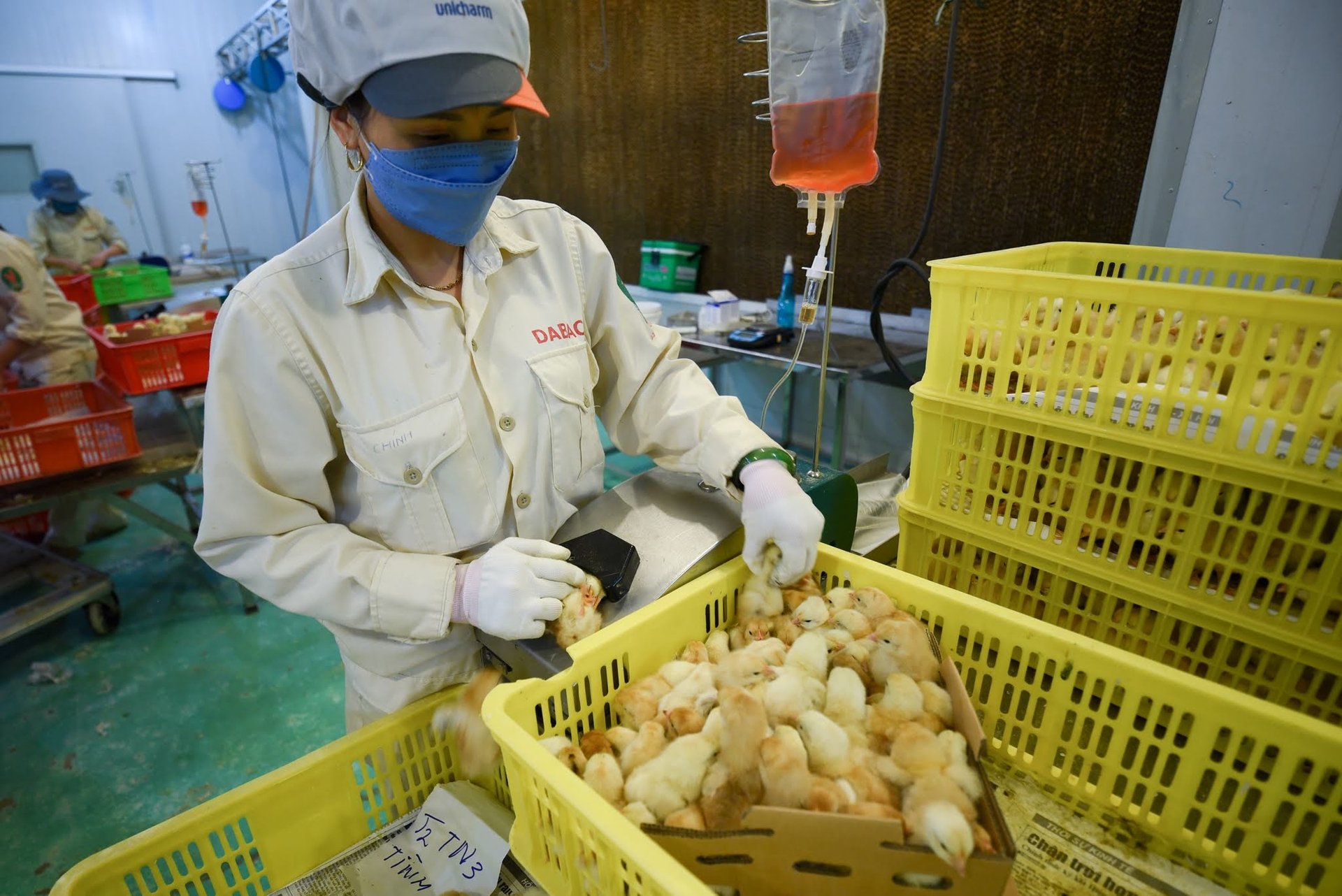
Vietnam's veterinary sector is expected to receive ample support from international organizations through a consultation workshop to launch the National Strategy Strengthening of the specialized veterinary management system at all levels for the period of 2021–2030. Photo: Tung Dinh.
Sir, what is the reason for the Ministry of Agriculture and Rural Development specifically the Department of Animal Health to coordinate with FAO to conduct the upcoming workshop on June 23?
Vietnam’s veterinary sector has received support from the international community, but the benefits are not much. So in order to guarantee the implementation and achieve the goals of the Decision approved by the Prime Minister, we have come to the conclusion that a consultation workshop is necessary.
We plan to invite every donor, relevant professional and technical bodies of international organizations such as FAO, including representatives from headquarters in Rome (Italy), representatives of the World Organization for Animal Health (WOAH, previously known as OIE) and other organizations whose activities are related to animal management and veterinary system.
In particular, the event will welcome the presence of all potential donors of credit institutions in the world such as WB, IMF, ADB, JICA, KOICA, USAID... and representatives of embassies of countries with good relations with Vietnam in the field of animal health.
So what is the purpose of this conference, sir?
The first objective is to share the status and results of the veterinary work at present, next is to relay information about the projects of Vietnam’s veterinary sector, update the achieved results, and vision the implementation from now to 2030.
As for the final purpose, we are going to inform what Vietnam’s veterinary will do in the future and what aspects international organizations will be able to participate in, whether technical, expert or even financial, depending on their interests.
There are 10 main groups of issues in the Prime Minister's proposal that we also ask for international support, and among them, the first two groups are considered vital.
The first group is to jointly review the system of legal documents on animal health, the Animal Health Law and sub-law documents to see whether the changes in Vietnam’s legal system are appropriate, adequate and responsive to practical conditions and international integration.
The most important thing is that we need to evaluate the Animal Health Law after ten years of implementation and propose adjustments if needed. Currently, disease prevention and control, including laboratory work, diagnosis and testing are very important, so these international organizations can assist the Government in developing regulations and decrees to better manage disease control and minimize the risk of pathogens from the laboratory spreading.
The second group is to complete and strengthen the capacity of the veterinary system at all levels, especially at the provincial and district levels, in accordance with the provisions of Article 6 of the Animal Health Law.
As for the method, we will improve infrastructure and train human resources for any units that lack capacity. After the change or merger of state management agencies, many personnel have left, so it is necessary to have a professional training program for the new force.
In order to meet the requirements of international integration, especially the risk of disease, even the units of the Department of Animal Health must be reviewed and strengthened, such as surveillance capacity, laboratory capacity. In particular, we not only focus on disease prevention and control but also the issue of drug resistance, because these are very important contents.
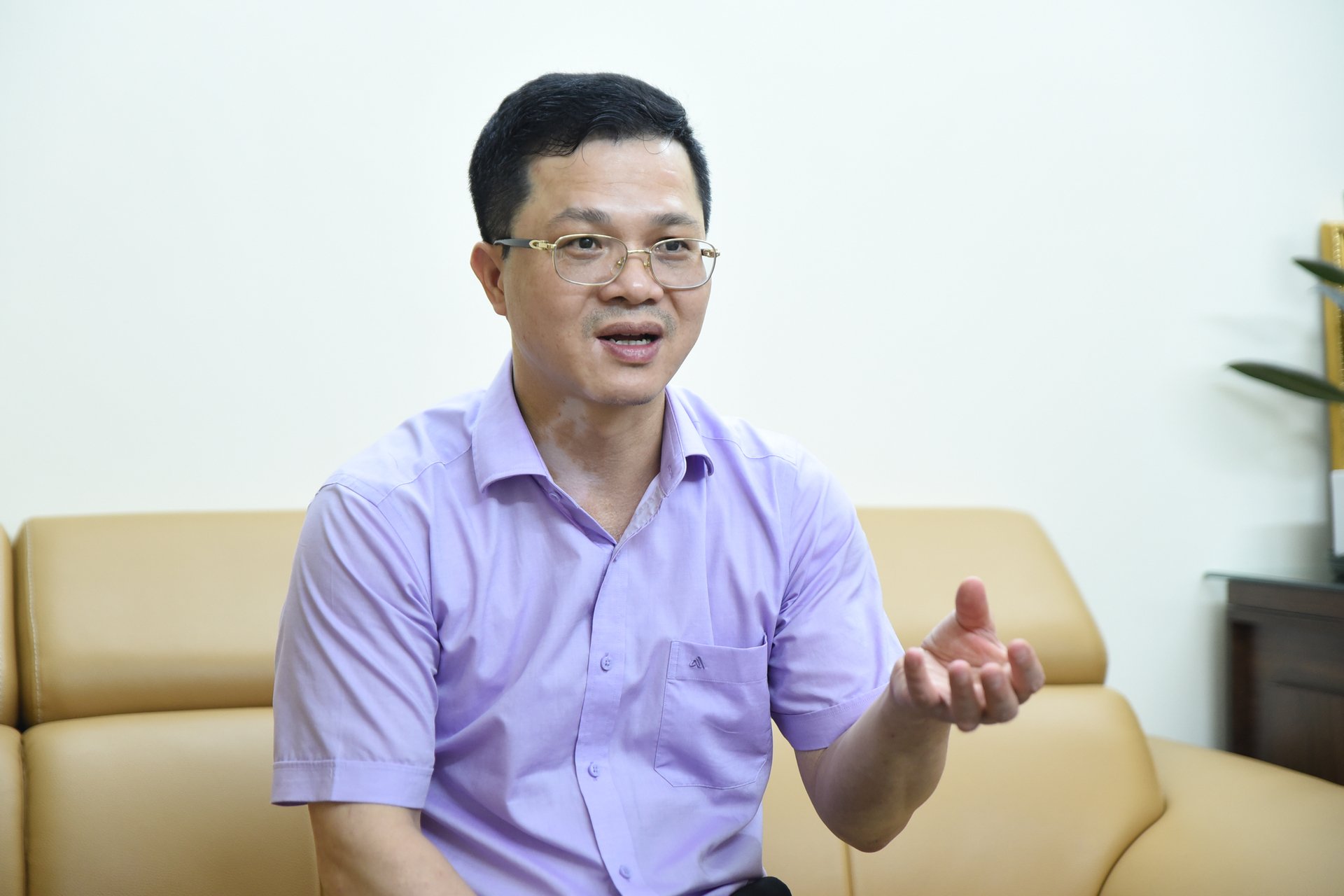
Director of the Department of Animal Health Nguyen Van Long (MARD). Photo: Tung Dinh.
Through this event, what support does Vietnam’s agricultural sector in general and the veterinary sector in particular hope to receive from international organizations with the programs that we are participating in?
The event creates an opportunity to share with the international community about the capacity of Vietnam’s veterinary sector as well as the problems we have to face and resolve in the future. The veterinary sector holds such an important role that the Party, Government and State of Vietnam attach special importance to it. There have been many documents, including Decision 44 of the Prime Minister approving the scheme to strengthen the capacity of Vietnam's veterinary sector in the next period.
Considering the current context of Vietnam, we seek knowledge from international organizations, thereby coming up with a series of solutions that Vietnam is ready to implement.
But there are also solutions that need the cooperation and consensus of international organizations such as the control of dangerous diseases and diseases that can be transmitted to humans. Although the Government of Vietnam has documents and plans for implementation, these diseases not only require actions from the veterinary sector but the health sector, other sectors as well as support from the international community.
Our big problem is still antibiotic resistance, which is a headache not only in Vietnam but also in other countries, so the knowledge of the international community is essential. Another issue is ensuring disease and food safety so that we can develop livestock and aquaculture not only for domestic consumption but also for export, bringing economic benefits.
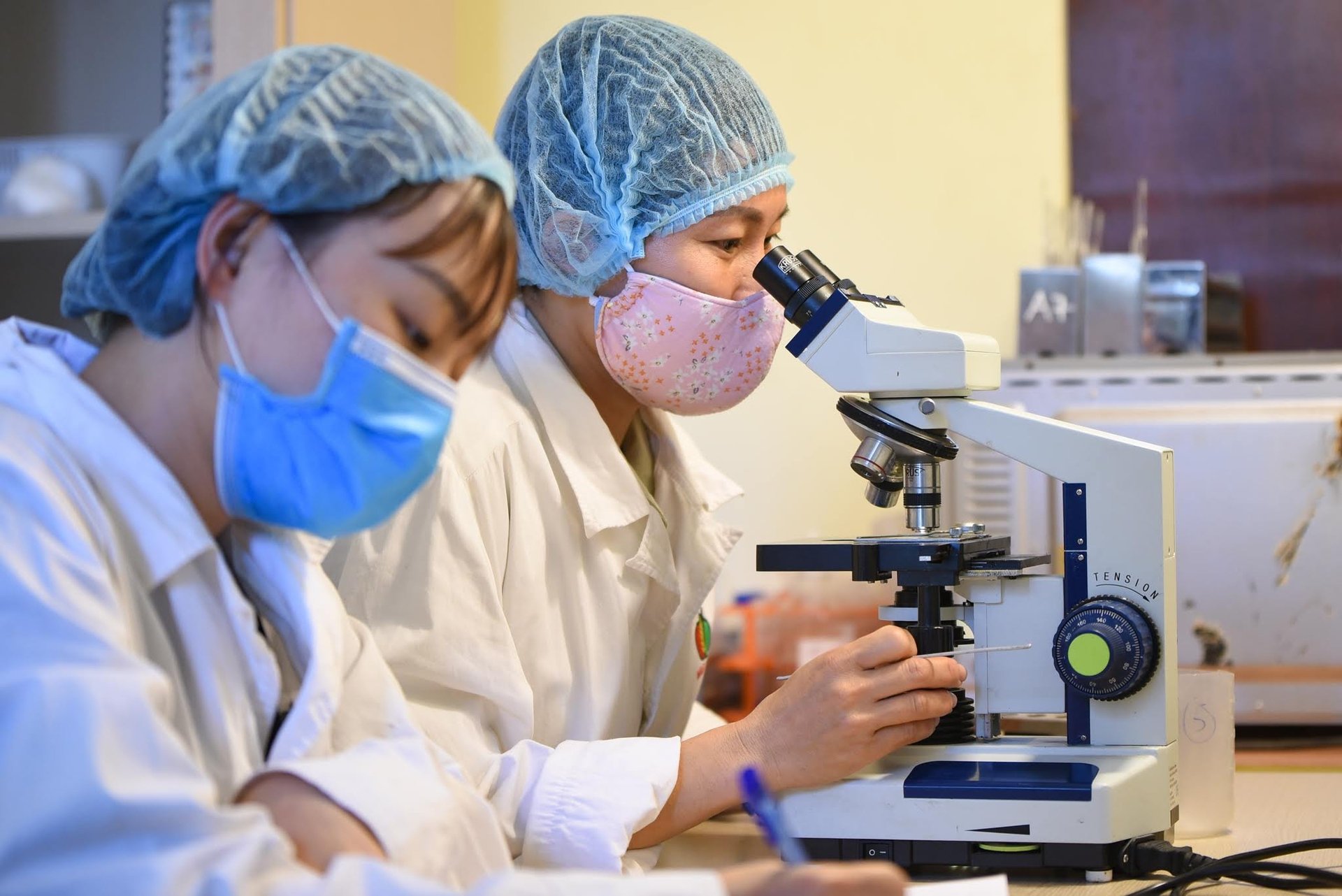
In addition to finance, human resources, science and technology can also make great contributions to the development of Vietnam's veterinary sector. Photo: Tung Dinh.
Having these expectations, how will we make recommendations to international organizations, sir?
First of all, after understanding Vietnam's wishes and plans, international organizations can provide technical support such as sharing experiences, sending experts to Vietnam or creating conditions for Vietnam to hire their high-quality professionals.
They can base on the order of priority issues that Vietnam has listed for appropriate support. Perhaps apart from technical issues, they can show support in funding for implementation. For example, we are receiving ample support from the USA through USAID, CDC... both technically and financially to help with the control of avian flu and rabies.
And not only diseases that can be transmitted to humans, but diseases that have the potential to affect trade and livestock development also receive great attention. African swine fever is a prime example. Not only FAO or the World Organization for Animal Health, but the US Department of Agriculture and the US Government have transferred science and technology and assisted Vietnam in producing vaccines.
The control of antibiotic resistance in Vietnam is also making great progress thanks to support from the international community. Antibiotic resistance in livestock and aquaculture will become a huge risk if not well managed, affecting not only the food safety of domestic consumers but also leaving consequences for export markets.
So what is the message that Vietnam’s veterinary sector wishes to convey to the global veterinary sector on the occasion of this event?
In May 2023, Deputy Minister Phung Duc Tien led the Vietnamese delegation to attend the 90th General Session of the World Organization for Animal Health. Here, the Deputy Minister gave an opening speech and had bilateral meetings with the General Director of WOAH and the committees of this organization.
Later, WOAH and Vietnam signed a memorandum of cooperation and support in the field of veterinary medicine, covering 11 different points from disease prevention and control, drug resistance, research and production of vaccines.
Therefore, through the conference on May 26, Vietnam will show the close cooperation between domestic veterinary medicine and the WOAH as well as other international organizations through both document systems and collaborative programs.
With many international partners participating, the conference is also an opportunity for Vietnam to show its openness in veterinary cooperation, besides we are also very responsible in working with the world community to control disease, prevent epidemics or information sharing.
International organizations will have a better understanding of what we have done, what problems we still have and what we prioritize in order to have appropriate support plans, both in terms of technology and funding.
In my opinion, this is a particularly important conference, demonstrating Vietnam's stature in the global veterinary field. The co-organization of this event by FAO shows the international trust in Vietnam’s veterinary sector.
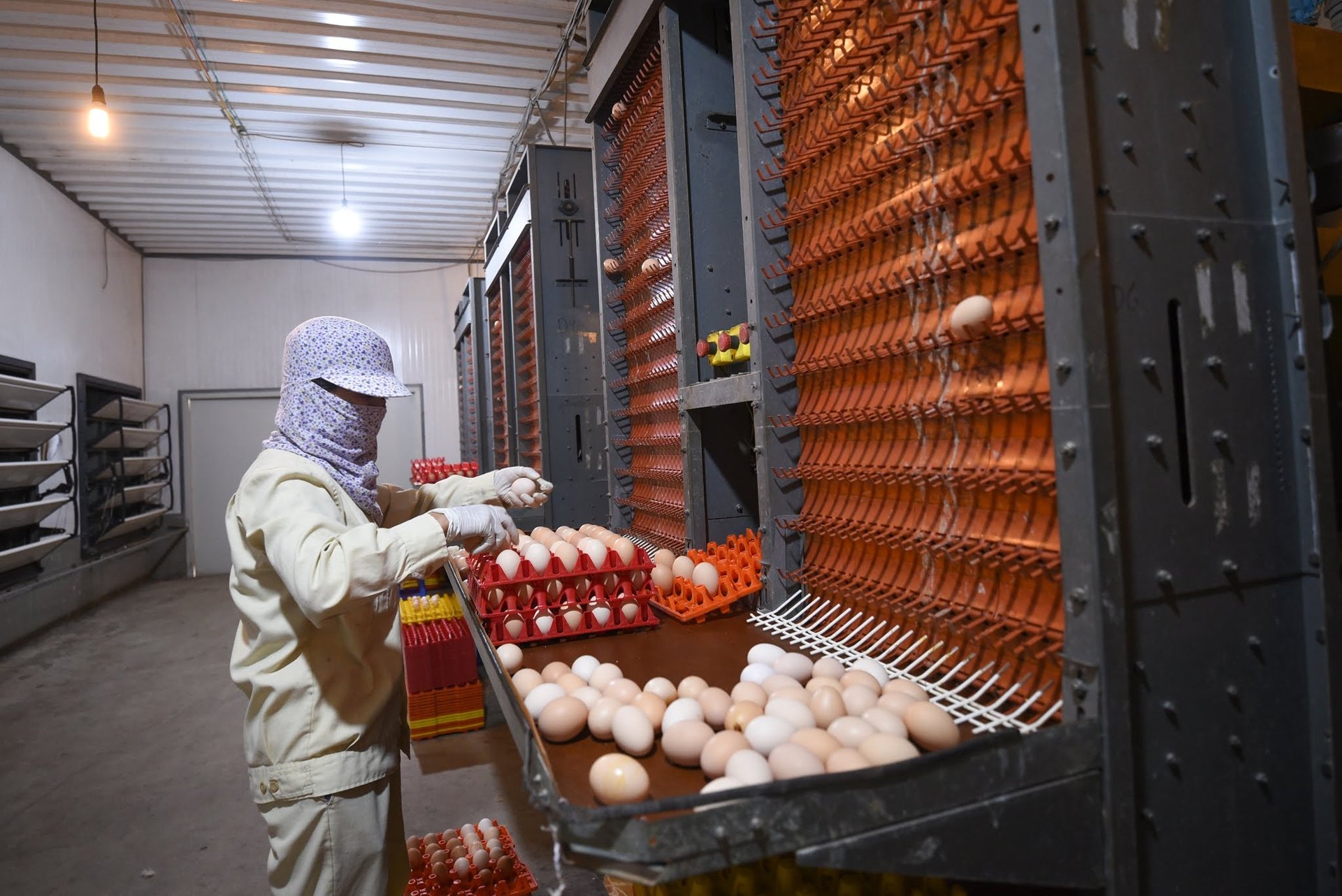
Disease-free husbandry is a basic condition for exporting livestock products. Photo: Tung Dinh.
Back to the issue of livestock development, it is not easy to have a disease-free breeding area at present. Can you please evaluate nternational organizations' ability to support for Vietnam to build new disease-free livestock areas for export in the near future?
The fact that international organizations, especially the ƯOAH, FAO and a number of countries have signed a memorandum of cooperation is a great help to Vietnam. The successfully built disease-free breeding areas not only conform to Vietnamese standards but world standards as well. Our goal is not only to sell livestock products to domestic consumers but also to promote exports.
Vietnam is known to have a very large total herd, but small-scale livestock production still accounts for a large proportion. Besides, Vietnam is not a disease-free country. There are many dangerous diseases, including diseases that can be transmitted to humans.
We also do not have a disease-free breeding area which can be up to the standards of the WOAH, leading to difficulties in exporting. We mainly export some processed products or fresh chicken eggs at best, while other fresh frozen products still face difficulties due to concerns related to disease safety, food safety or traceability.
In this event, we need to share the difficulties and realities that Vietnam is facing, also our wishes to be supported in the near future. Regarding the goal of Vietnam's veterinary sector, by 2025 we will build pig and poultry breeding areas that meet the disease safety standards of the World Organization for Animal Health, from which we can be assured and confident to export livestock products.
Thank you, sir!
Translated by Samuel Pham
![Turning wind and rain into action: [10] Advancing accessible climate services for farmers](https://t.ex-cdn.com/nongnghiepmoitruong.vn/608w/files/linhnhp/2025/06/20/1911-z6704423696987_15fd32ffc26d590d204d520c9dac6786-nongnghiep-161854.jpg)
(VAN) Not only does it help farmers 'avoid droughts and rains,' the development of agricultural climate services also enhances their ability to proactively adapt to a rapidly changing climate.
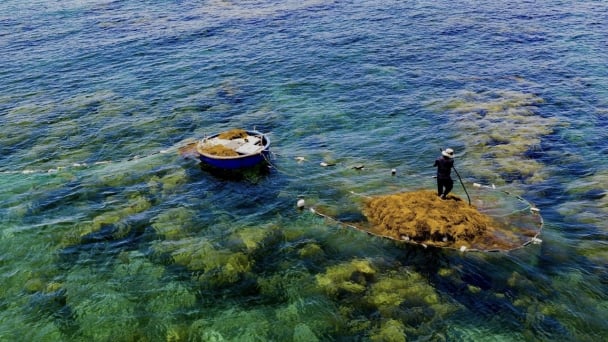
(VAN) With international assistance, the harvesting of sargassum seaweed in Quang Ngai has become increasingly regulated, thereby safeguarding marine life and ensuring the stability of coastal communities' livelihoods.
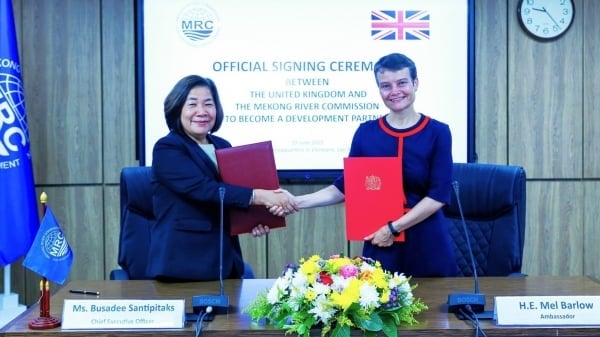
(VAN) On June 19, the United Kingdom officially became a Development Partner of the Mekong River Commission.

(VAN) Biodiversity is being threatened by traditional remedies made from wildlife. Traditional medicine and humans must change to live in harmony with nature.

(VAN) Agrifood investment and finance solutions for people and the planet.

(VAN) Microplastic contamination has become pervasive in seafood, posing unprecedented challenges for food safety and marine ecosystems.
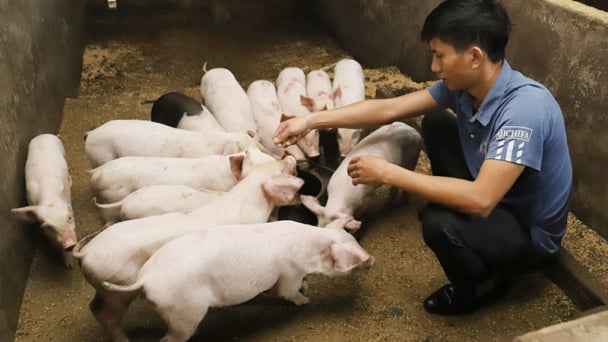
(VAN) Proactively using vaccines, combined with transport control and enhanced surveillance, is the only viable path toward biosecure and sustainable livestock production in Vietnam.